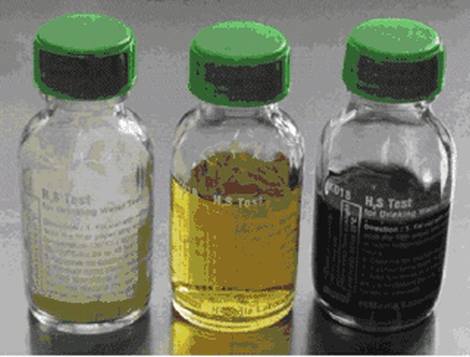S0000568
Bacteriological H2S field tst kit,bottle
H2S producing bacteria Presence/Absence field test (in a bottle) for drinking water. Comes in box of 10 or 100 tests.
Indicative Price 1.89 USD
Comes in box of 10 or 100 tests. Quantity ordered must be a multiple of 100.
Total Shelf life: 24 months
This is a simple bacteriological testing product that could be used to indicate the presence of pathogens. It does not attempt to identify the pathogens.
The product can be used with any water irrespective of its source, including chlorinated water. Sample size is 20 ml.
The product comprises a simple sterilized glass bottle that contains dry H2S test medium.
The medium is completely soluble in water and a dark amber colour solution is formed on the addition of water.
The solution will change colour to black in the presence of H2S producing organisms in ambient temperatures between 32-35ºC, for an observation time of 24 to 48 hours. No incubator is needed for this range of temperatures.
Related Products



